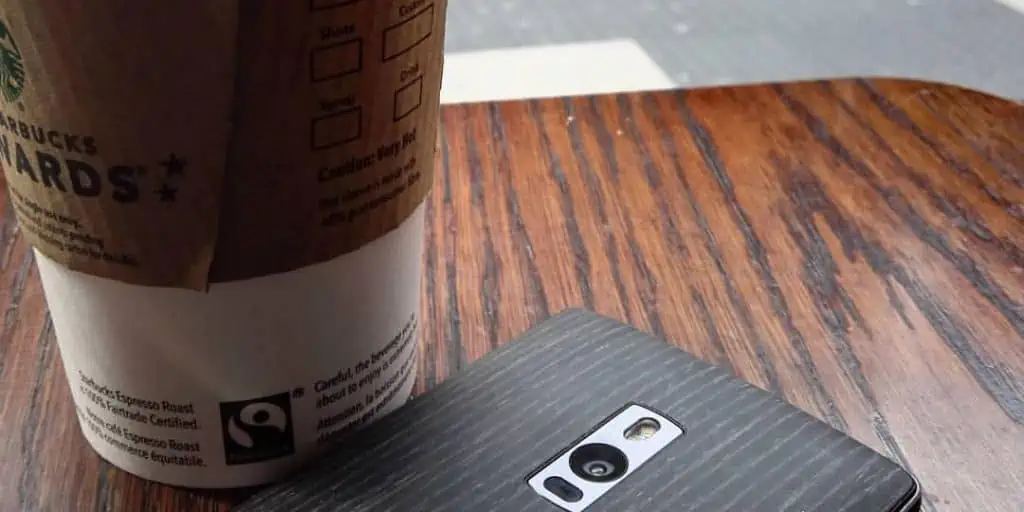What Is SMS/Text Marketing?
How Can SMS Be Used for Marketing?
Businesses and organizations use SMS (short message service) or text messages to generate leads, increase brand awareness, and communicate campaigns, promotions, and updates directly to customers.
SMS marketing campaigns simplify the core goal of marketing—building and maintaining customer relationships—because text messages are as easy and direct as any other marketing messages. In addition, SMS campaigns cost significantly less than other marketing channels[1].
There are different ways to communicate with customers and prospects with SMS marketing. For instance, a text message can be a one-on-one conversation between a business and a customer, such as when a staff member responds directly to inquiries via text. A marketing message can also be an automated text sent when the customer performs a specific action, such as completing an online order. Texts can even be part of bulk SMS messages sent to a group of customers, such as holiday greetings and announcements.
Types of SMS Marketing Messages
Broadly speaking, there are two types of communications in SMS marketing—promotional and transactional.
Promotional SMS marketing involves text messages that build brand awareness, promote a product, or increase sales. They can also offer special sales or promotions, provide helpful information on product usage, or share relevant company announcements. These SMS marketing campaigns are usually creative and designed to prompt the recipient into taking certain actions.
Transactional SMS marketing, on the other hand, involves text messages that contain useful information for the recipient, such as delivery updates and shipping information. Transactional SMS messages are usually simple and straight to the point. They improve the overall customer experience by keeping them informed at different stages of the buyer journey. As opposed to promotional messages that drive sales, transactional messages are, in essence, SMS customer service.
Who Can Benefit From Using SMS Marketing?
Because it communicates relevant information in a highly reliable way, SMS marketing is an effective tool for small businesses and large corporations alike.
Certain businesses stand to benefit the most from SMS marketing. These include:
- Ecommerce stores — Every year, more people are doing their shopping straight from their smartphones. Mobile e-commerce sales are expected to climb over $700 billion in total sales in the next few years[2]. SMS marketing particularly targets mobile devices, so it makes sense to utilize it to build stronger customer relationships.
- Travel companies — Text messaging is a great way to disseminate real-time information on the go. This is essential to travel companies because it allows them to keep their customers up to date on important information changes, such as cancellations, gate changes, weather alerts, flight delays, and many more.
- Businesses that require appointments — SMS marketing can be particularly beneficial to service businesses that require customers to book appointments. An SMS marketing program allows these companies to send appointment reminders, location information, schedule changes, and more using text messages.
- Large organizations — Companies with 100+ employees can greatly benefit from SMS messaging over email for internal communication.

credit: Matteo Doni, CC BY-SA 2.0, via Wikimedia Commons
Examples of multinational companies that leverage SMS marketing platforms include Starbucks, HBO, Domino’s, Chipotle, and IKEA[3].
Does SMS Marketing Work?
Statistics show that SMS marketing works. With an incredible open rate of 98%[4], SMS offers one of the most effective marketing channels available to businesses.
Here are a few reasons SMS marketing works:
Mobile Phone Usage
According to Pew Research, around 97% of Americans own a cellphone of some kind[5]. This makes SMS marketing a particularly useful tool for targeting a wide audience and reaching customers directly. Businesses can take advantage of it to increase brand awareness and improve customer experience.
Also note that a traditional SMS marketing message requires no WiFi or cellular data connections to be enabled before it can be sent or received[6]. This makes SMS campaigns the go-to digital marketing strategy for businesses looking to target potential customers in areas with poor internet connectivity.
Fast Creation and Delivery
An SMS message has a low character limit (160 characters). Additionally, there is no image or graphic design whatsoever involved, unlike social media or email marketing. This makes them significantly faster to create and send.
Delivery times for SMS messages are typically faster than other marketing communications since they do not rely on the internet. Recipients also usually receive instant notifications on their phones when they get a text; for social media or email, the recipients can only see the message when they are logged in.
High Engagement Rates
Around 82% of people open every text message they receive and 90% of text messages are read within three minutes of receipt, while the average response rate is 45%[7].
This makes SMS marketing a powerful tool for sending and receiving critical information with a high success rate.
Efficient
Unlike email or social media marketing, creating and sending text messages require no special training. This allows businesses to send out their marketing messages directly to their intended recipients while avoiding costs associated with hiring professionals such as graphic designers, social media managers, email marketing experts, and so on.
SMS marketing also involves fewer technical issues, such as poor internet or problems with the platform, that can affect visibility and engagement.
Scalable
Businesses of all sizes can integrate SMS marketing into their overall marketing strategy. Large corporations can create campaigns on a national scale, while local businesses can send more targeted information to their SMS subscribers. As the business grows, so can its SMS marketing strategy without the added burden of significant costs. There are no expensive media buys or increased pay-per-click ad spends to worry about.
Plus, there is no need to worry about competing for a customer’s attention when sending text messages directly to a mobile device.
Complements Other Marketing Channels
SMS marketing works well with other marketing channels, including social media and email. With its high open and read rates, it can be an effective way to quickly communicate urgent messages with customers.
Essentials of an Effective SMS Marketing Strategy
When crafting a great SMS marketing strategy, it is important to get all the essentials in order before getting started. SMS marketing best practices include:
- Voluntary Opt-Ins — Text message marketing provides a direct line of communication to the customer. But it only works if the customer has voluntarily opted in to receive text messages from that business. Unsolicited SMS messages are likely to make the sender look like a nuisance.
- Personalized — SMS messages are most effective when they are personalized to the recipient. Brands must understand exactly what their audience members are looking for and how often customers expect to receive text messages.
- Relevant — Brands must give subscribers exactly what they have signed up for. For instance, if they have signed up for transactional text messages only, that is all they should receive.
- Automation — Automated SMS marketing helps brands deliver personalized and timely messages without having to put in significant manual work. Businesses can employ various SMS marketing automation tools and software for better, more efficient results[8].
- Less is more — SMS is typically limited to 160 characters, so messages must be straight to the point. The frequency of delivery is an important consideration as well, since too many text messages within a short period may cause existing customers to opt out from receiving future messages.
Takeaways
- SMS marketing is a marketing method of reaching potential customers using text messaging.
- SMS messages are among the most direct and personal forms of communication with prospects and customers, boasting high engagement rates, less chance of technical errors, and greater scalability.
- Like any form of marketing, an SMS campaign should provide value and relevance to the target audience; companies that use SMS marketing need to be intentional with how they engage customers.
Sources
- Freedman, M. (2022, December 6.) The Best Text Message Marketing Services of 2022 Business News Daily. Retrieved from https://www.businessnewsdaily.com/15044-best-text-message-marketing-solutions.html
- Romis, R. (2022, March 25.) 4 Reasons Why SMS Is The Future Of E-Commerce. Forbes. Retrieved from https://www.forbes.com/sites/forbesagencycouncil/2022/03/25/4-reasons-why-sms-is-the-future-of-e-commerce/?sh=7a79a2cc528d
- Chantel, J. (2022, August 31.) 8 Companies That Use Mobile Marketing (And Are Scoring Big). Textedly. Retrieved from https://blog.textedly.com/6-big-brands-that-use-sms-marketing
- Draper, A. (2022, July 11.) SMS Versus Email Marketing. Business2Community. Retrieved from https://www.business2community.com/digital-marketing/sms-versus-email-marketing-0957139#!bth7SG
- Mobile Fact Sheet (2021, April 7.) Pew Research Center. Retrieved from https://www.pewresearch.org/internet/fact-sheet/mobile/
- Can’t Send or Receive Messages Without Internet on iPhone – Does Texting Use Data (11 November 2022.) TheCellguide. Retrieved from https://thecellguide.com/cant-send-or-receive-messages-without-internet-on-iphone-254
- SMS vs Email and Apps: Customer engagement infograph. (2018, June 14.) VoiceSage. Retrieved from https://www.voicesage.com/blog/sms-compared-to-email-infograph/
- Best SMS Marketing Software. (2022, December 14.) G2. Retrieved from https://www.g2.com/categories/sms-marketing













